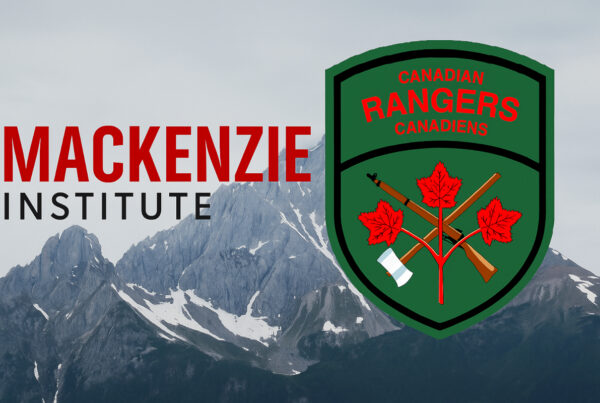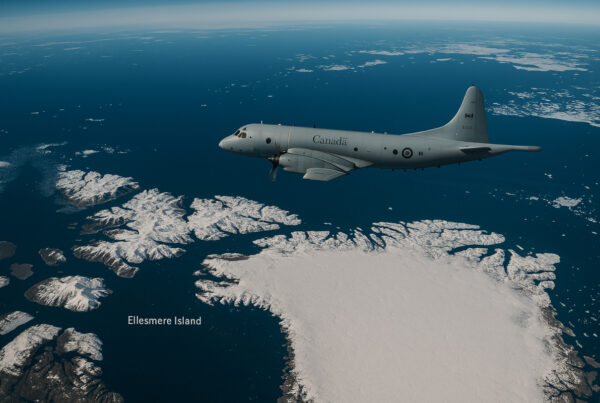(Written by David Baxter
More than half of Canadians (56 per cent) see the Canadian Armed Forces (CAF) as “old and antiquated,” according to a recent Ipsos poll conducted exclusively for Global News.
The findings are in line with polling the defence department conducted between Dec. 19, 2022 and Jan. 15, 2023. That phone and internet survey found only one in five Canadians saw the CAF as a modern institution, with 29 per cent saying it’s outdated.
Ipsos CEO Darrell Bricker says most respondents to its poll, conducted in June, said there is a way to shift this perspective: put more money into the armed forces.
“The solution to that, Canadians tell us, is probably giving them more money. And if they could just find their way through the, what Canadians see as incompetence and political interference … Canadians feel that they could get there. But at the moment, definitely not there,” Bricker told Global News.
Seventy-five per cent of those polled by Ipsos said Canada should increase defence spending to ensure Canada can protect its own territory and sovereignty.
The poll found there were a number of reasons spurring Canadians’ worries about military readiness.
Most Canadians said their concerns about defending Canada are directly related to Russia’s invasion of Ukraine (71 per cent) and China’s recent actions in the Taiwan Strait (69 per cent).
Retired major-general Denis Thompson says all branches of the Canadian Forces are in need of modernized equipment, such as frigates for the Navy and incoming F-35 fighter jets for the Air Force.
Ottawa has committed to $8 billion in new military spending over the next five years in the 2022–23 federal budget, along with a defence policy update.
Thompson says any spending needs to be seen as an investment.
“Deterrence is much cheaper than going to war. And I think that’s the point that has to be made to a lot of Canadians, is that while we can rest on our laurels and perhaps lean on the United States, they’re not going to put up with it for much longer,” Thompson told Global News.
Ipsos found that a larger number of young people, 36 per cent of 18- to 34-year-olds, say Canada should leave defence up to the United States, compared with 12 per cent of those 55 and older.
The majority of that younger cohort (66 per cent) would rather see money being spent on other domestic issues, whereas 41 per cent of those 55 and older felt that way.
However, the Americans are pushing for more Canadian defence investment with continued calls for Canada to meet its NATO commitment of putting two per cent of GDP into defence spending, and further NORAD investments.
In his recent confirmation hearing, new American NORAD commander Gregory Guillot committed to having “tough conversations” with Canada on military spending.
Bricker, Thompson and the defence department study all find that the average Canadian is disconnected from the day-to-day operations of the CAF, but the war in Ukraine is increasing public awareness.
However, amid issues impacting Canadians’ daily lives, like the high cost of living, potential threats from nations like Russia can fall by the wayside in the minds of regular Canadians.
“Health care, better roads, have better education. These are things that are top of mind for most Canadians. And defence only comes to the fore when there’s a crisis. And Ukraine is a crisis. But it’s a long way from Canada,” Thompson said.
Safeguarding the North
One area where Canadians feel the military should play a larger role is in the Arctic, Ipsos found.
Melting polar ice is making way for new shipping routes and is a new source of East-West geopolitical tensions.
Key findings on northern defence include 83 per cent in favour of the military monitoring all ship traffic through the Northwest Passage – which passes through Canadian waters.
Meanwhile, 73 per cent of Canadians surveyed want to see more military bases in the Arctic, and 51 per cent are on board with Canada buying nuclear submarines to defend the region.
“The thing that probably is driving their biggest level of concern is our northern neighbour, which is Russia, and what’s going on in Ukraine right now. And some of those old Cold War feelings towards Russia and the North are probably coming back up,” Bricker said.
These are some of the findings of an Ipsos poll conducted between June 19 and 20, 2023, on behalf of Global News. For this survey, a sample of 1,000 Canadians aged 18+ was interviewed. Quotas and weighting were employed to ensure that the sample’s composition reflects that of the Canadian population according to census parameters. The precision of Ipsos online polls is measured using a credibility interval. In this case, the poll is accurate to within ± 3.5 percentage points, 19 times out of 20, had all Canadians aged 18+ been polled. The credibility interval will be wider among subsets of the population. All sample surveys and polls may be subject to other sources of error, including, but not limited to, coverage error and measurement error.








